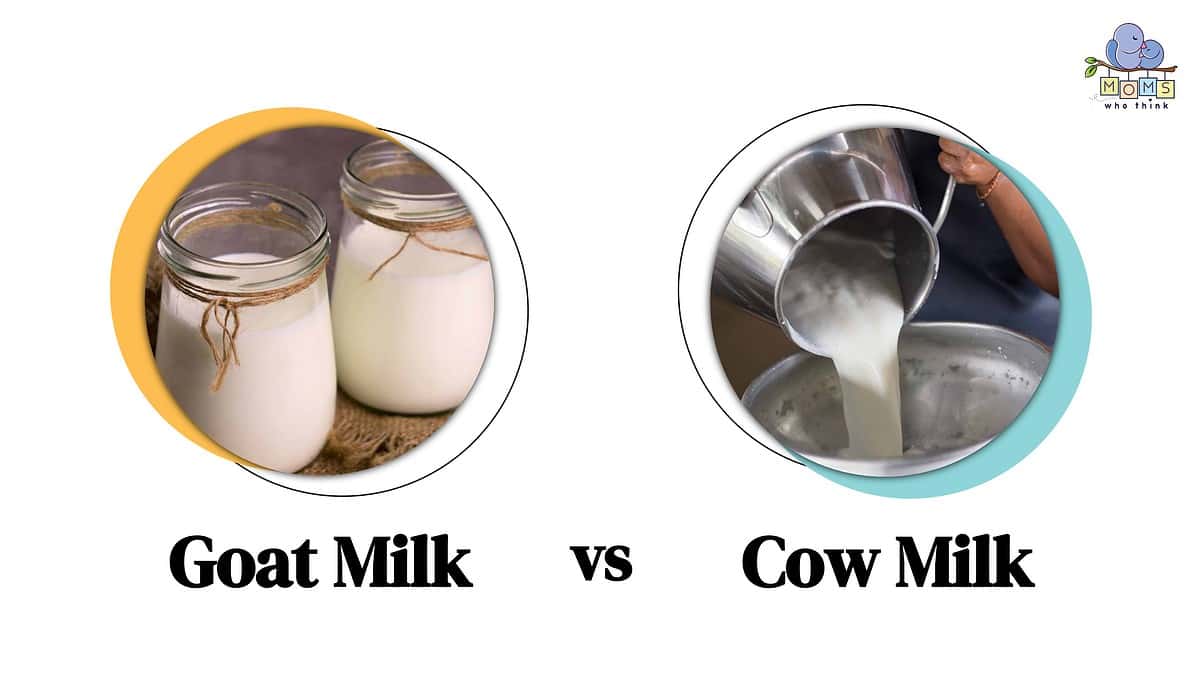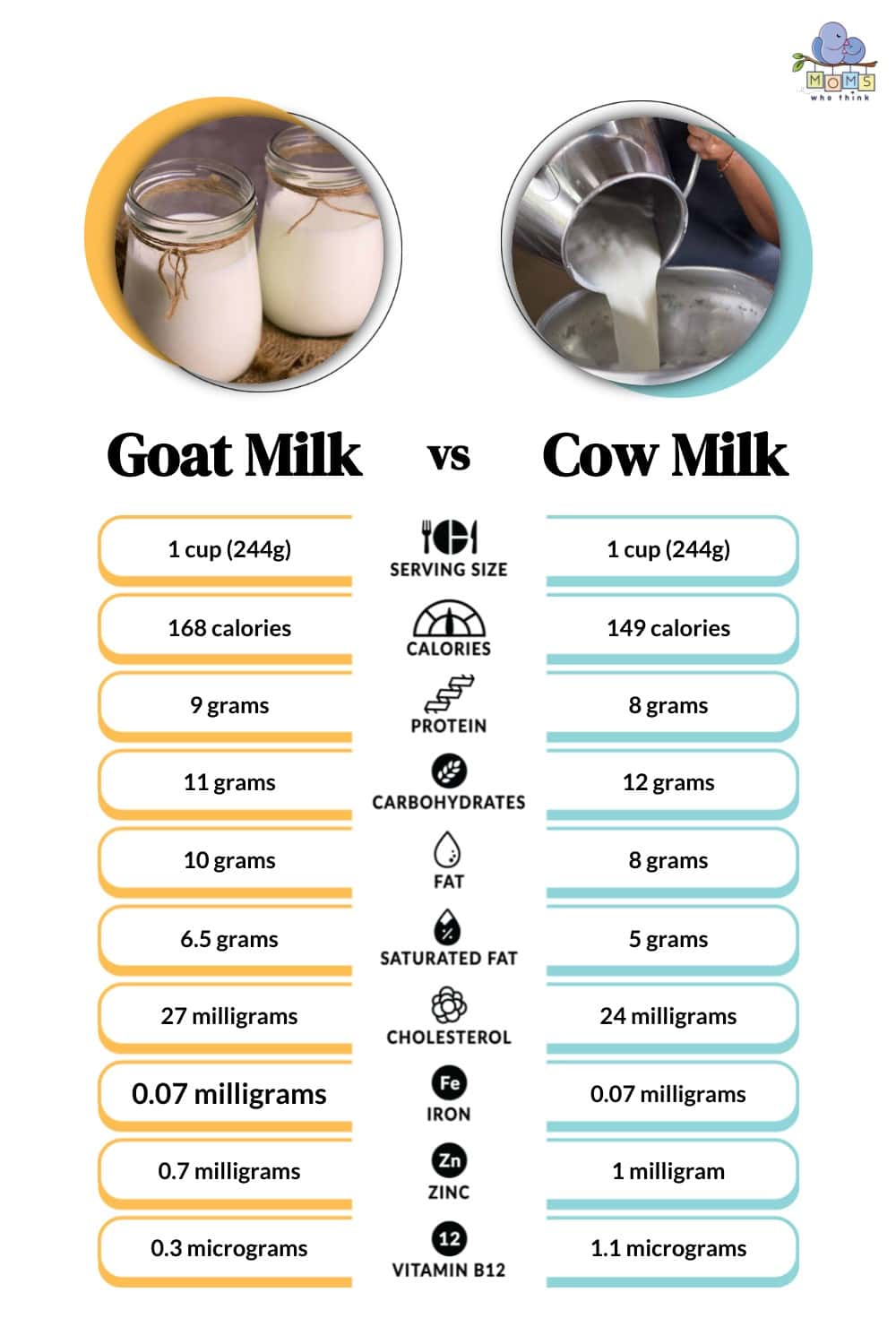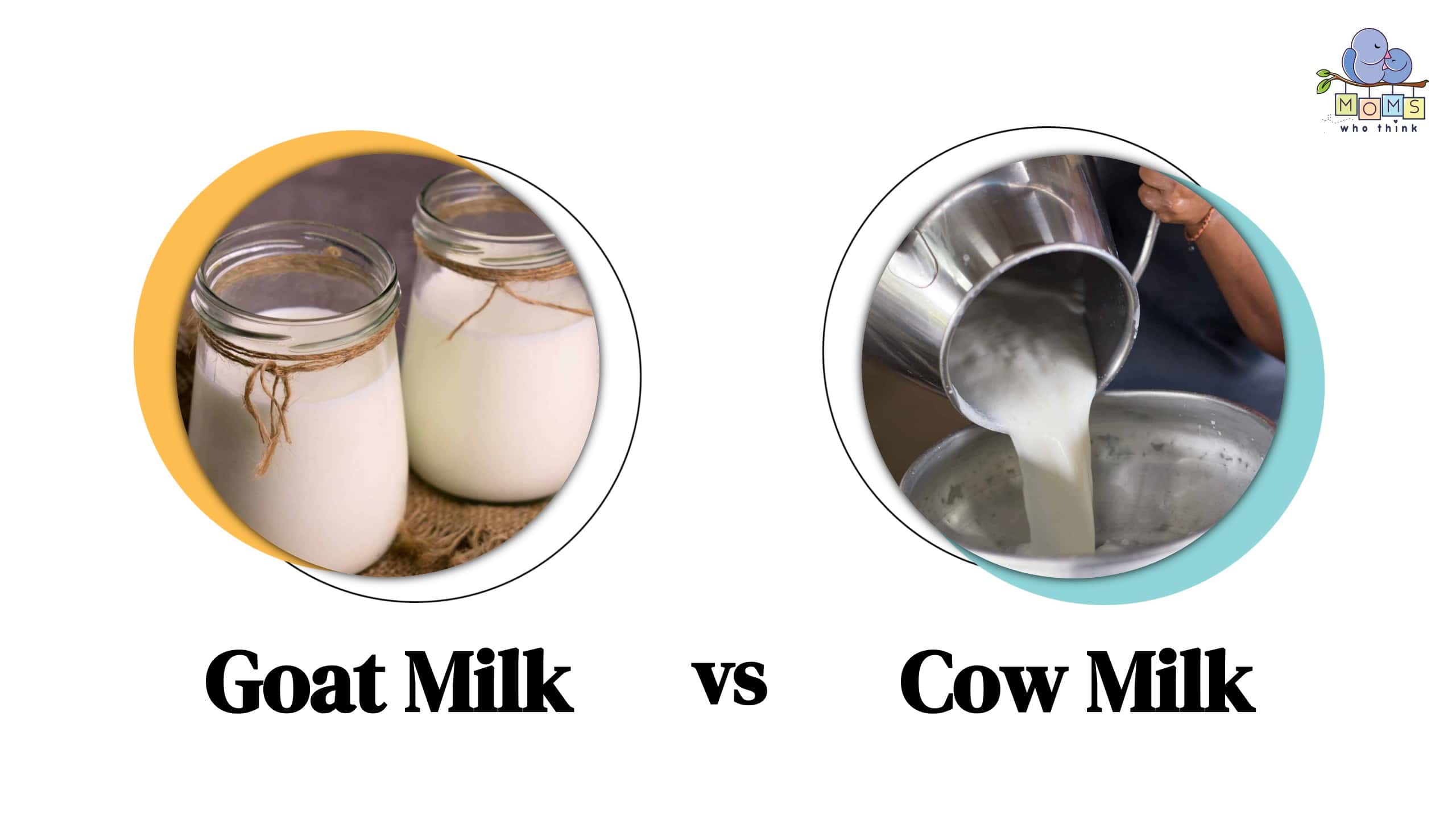Goat Milk vs. cow milk: What's the difference? While they are milk, they have vastly different benefits. They also have a unique history of being developed. But what's the better choice for you?
Choosing between goat milk and cow milk depends on a few factors. For instance, some people are allergic to cow milk and prefer goat milk. Others prefer goat milk because it offers different nutritional value than cow milk. There's also a significant taste difference when it comes to goat milk and cow milk. You also may not like that cow milk comes from poorly treated cows vs. well-treated goats.
This guide gives you everything about goat vs. cow milk's benefits. We dive into their history, what makes them unique, and how either one may benefit you more. Understanding this can give you a better idea of what dairy may be best for you.
Goat Milk vs. Cow Milk: The History

Goat milk was the first domesticated animal. Some refer to goat's milk as a “poor man's cow.” However, goat milk is just as good as cow's milk. Goat milk originated in the 1500s in North America. However, they were free animals that just wandered across the United States. Only some small farms raised goats and used them for goat milk or cheese.
The rise of goat milk didn't happen until post-World War II, with the rise of Victoria Gardens, sometimes referred to as War Gardens. These were gardens or farms designed to help during World War II.
Today, there are six popular breeds of goat milk. The most popular is the LaMancha breed for dairy production. Nubian, Alpine, Toggenburg, and Oberhasli are other breeds that produce goat milk.
When it comes to the history of cow milk, there's a 10,000-year history that started in Turkey. It was used to make milk, butter, and yogurt. The ability of humans to tolerate milk and become lactose-tolerant evolved over the years.
However, in the early 19th century, there was the issue of disease with raw milk. It created typhoid fever, scarlet fever, tuberculosis, and diphtheria. This was because milk wasn't pasteurized, which didn't come out until 1864. In the early 1900s, pasteurization became a process and requirement for all milk sold.
Taste Differences
If you love cow milk but want to see what goat milk tastes like, you'll notice many unique differences between them. For example, cow milk has a mild taste to it. There's also a neutral and creamy flavor compared to goat milk.
Goat milk has a much different taste to it. There's no aftertaste, and it can sometimes be described as sweet. Some might also describe it as tangy. Goat milk takes more getting used to it because the taste is much more pungent.
However, if you're trying to decide between the two, goat milk is often sweeter (and tangier) than cow's milk.
The Nutritional Value
When it comes to nutritional value, goat milk and cow milk are much different.
For instance, when it comes to fat and calories, goat milk is higher. There's also more protein, vitamins, and minerals in goat milk. People who are lactose intolerant regarding any milk will typically choose goat milk over cow's milk because there's less lactose.
Calcium is one of the best benefits of cow and goat's milk. It helps prevent osteoporosis. It also helps heal bone fractures and keeps your body at a healthy weight. Additionally, if you are deficient in iron and magnesium, you'll find that cow and goat's milk helps to supplement your need for them.
Goat milk is also specifically good for the skin. It helps reduce acne and blackheads. It also helps reduce smooth and whiten your skin. Another benefit that goat milk is known for is that it's easy to digest, which is why it's the alternative to cow's milk. This is also why parents give kids goat's milk because it prevents milk allergies.
Cow's milk and goat's milk are also great for insulin resistance. This increases blood sugar levels in your body.
Should You Eat Goat Milk or Cow Milk?

Cow and goat milk are nothing alike. They might both be considered milk, but their nutritional value, history, and taste differ. Choosing between either one is about which one you prefer. It's also about what nutritional benefits you want from either one or if you're lactose intolerant to cow's milk.
There are a lot of factors that will influence your decision on which one to get. This guide gives you an idea of what you can expect from both and what's better for you.

